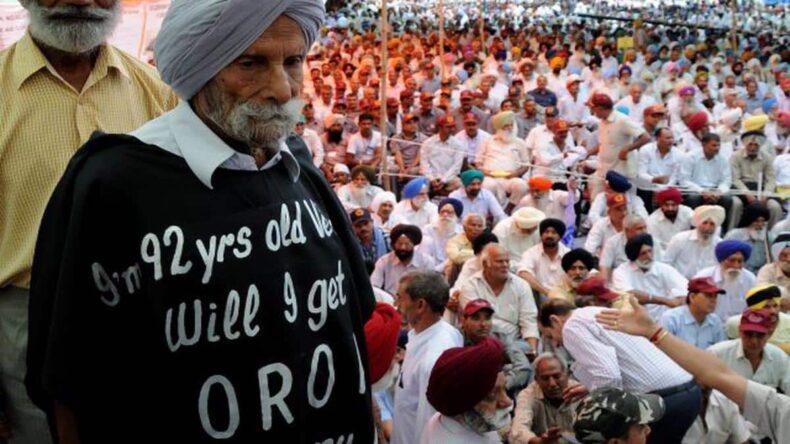The apex court on Monday directed the centre to clear all dues in the one-rank-one pension scheme (OROP)
The Supreme Court stated during the hearing of the One Rank One Pension System (OROP) lawsuit that the Centre has a responsibility to follow the 2022 ruling about the OROP programme. The top court made it clear that payments for 10–11 lakh pensioners must be made in three equal instalments by February 28 of the following year and that paying OROP debts won’t prevent the ex-pension servicemen from being further equalised in 2024.
In accordance with the case, Chief Justice of India D Y Chandrachud said that he dislikes sealed covers and would not be accepting the sealed cover memo that the central government had provided in the OROP arrears case. He affirmed that in court there must be transparency and it should work on directives rather than hiding the facts.
Furthermore, six lakh family pensioners and recipients of gallantry awards will receive outstanding OROP arrears from the government by April 30.
Payouts for those over 70 should take place on or before June 30, 2024. The Union may choose to pay the total amount owing in one lump sum or in several payments up to and including June 30, 2024. Payments for the remaining staff shall be provided in three equal instalments by the deadlines of August 31, 2024, November 30, 2024, and February 28, 2024.
The top court has received documents from the defence ministry that include an affidavit and a compliance note outlining the timeline for paying ex-arrears servicemen of Rs. 28,000 crores for the years 2019–2022.
The issue was carried out by the bench of three judges, DY Chandrachud, the Chief Justice of India, Justice PS Narasimha, and JB Pardiwala.
On March 13, the highest court took a harsh stance against the government for electing to pay OROP fees in four installments at its discretion.
The controversy is related to the March 2022 ruling, in which the Supreme Court supported the OROP programme that the Central government had implemented through its announcement on November 7, 2015.
The Indian Ex-Servicemen Movement’s (IESM) request for payment of OROP dues was being heard by the bench.
The Ministry of Defense was ordered to establish a timeline for the payment of arrears during the previous hearing of the case on March 13 by the Supreme Court.
Attorney General for India (AG) R Venkataramani, who was representing the Ministry of Defence, presented over a sealed cover to the Court on Monday about the government’s agenda on payment of receivables when the case was called for hearing today.
The Indian military forces and veterans have long demanded One Rank One Pension (OROP), often known as “same pension, for same rank, for the same duration of service, notwithstanding their date of retirement.” The interlocutory decision by the Indira Gandhi-led Indian National Congress (INC) government in 1973, two years after the pivotal victory in the 1971 Bangladesh war, sparked the demand for pay-pension fairness, which constitutes the basis of the OROP idea.
Many veterans have strong feelings about the OROP. To sustain the confidence between the nation’s armed services and the ruling administration, a rigorous assessment of the system and the demands is necessary. Before making any choice, the government must take into account both the country’s financial stability and the morale of the armed forces.













